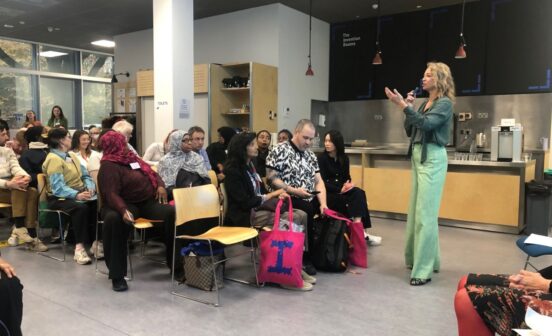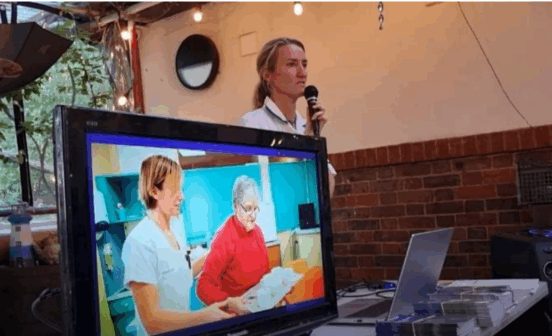PERC was started by Professor Helen Ward (an epidemiologist) and Professor Sophie Day (an anthropologist) in 2011 and, since then has been undertaking social research in translational medicine, investigating inequalities in research participation, focusing on underrepresented and underserved communities, the impact of research on patient experience, and how precision medicine affects care pathways.
Applications for the Collaboration Kickstarter award, offering up to £10,000, are open until 17:00 on 12 December 2025. This funding supports engaged research between Imperial College researchers and communities in Northwest London
NIHR guidance for reporting public and patient involvement (PPI) in publications can be found here.
What is the Imperial Biomedical Research Centre Patient Experience Research Centre (PERC)?
PERC is a core facility of the NIHR Imperial BRC and its role is to:
- Provide day-to-day advice and support on inclusive and accessible public involvement, engagement and participation (PPIEP) in health research to BRC Themes. They do this by working with two nominated PPIEP leads and a group of Community Partners in each Theme to implement the Imperial PPIEP BRC Strategy 2022 to 2027
- Support Community Partners making up steering groups for each BRC Theme and PERC
- Support and study processes of translational research with a focus on Equality, Diversity and Inclusivity (EDI) and the impact on patient experience including using qualitative and participatory research methods e.g. HIV, Long COVID, frailty
- Advise on recruitment of research participants from underrepresented communities
- Offer PPIE-coproduced training and evaluation tools for researchers and members of the public
- Provide advice to researchers on participatory research methods
- Host secondments for Imperial clinical and research staff on participatory research methods and public involvement in research.
Alongside Professors Ward and Day, PERC comprises a group of multi-disciplinary staff including clinical research fellows, qualitative researchers, research nurses and public involvement practitioners. Please see our website to meet our team.
PERC’s PPIEP Resources
PERC has extensive online PPIEP resources to support and guide public involvement in research including:
- Template documents and guidance in our Public Involvement Research Hub
- Our downloadable Rough Guide to Public Involvement (pdf)
- A blog of good practice PPIEP examples
- A number of public networks through which members of the public can hear about PPIEP opportunities. Members of the public can sign up to these public networks here or to our mailing list here.
- Online training courses through Coursera on participatory research; and public involvement. These are suitable for both researchers and some members of the public. For more details see the PERC’s website’s Training
If you are an Imperial BRC researcher and want:

Our Community Partners
-
- sharing their views and those of their wider communities on research priorities for health and wellbeing
- advising on the design and communication of research so it is both accessible and acceptable
- providing and/or supporting opportunities for researchers and clinicians to engage and involve communities and organisations across Northwest London (and more widely) about health and health research.
- advising on social research undertaken by PERC including qualitative and participatory research methods
PERC has a group of Community Partners who act as our advisors and critical friends. Below is a list of PERC’s Community Partners who were happy to be included on this page and a little about them

Key Individuals
-
Professor Helen Ward
Theme Lead, SGE, Professor of Public Health and Director, PERC -
Ms Maria Piggin
PERC Partnerships & Training Manager -
Professor Sophie Day
Visiting Professor of Anthropology











